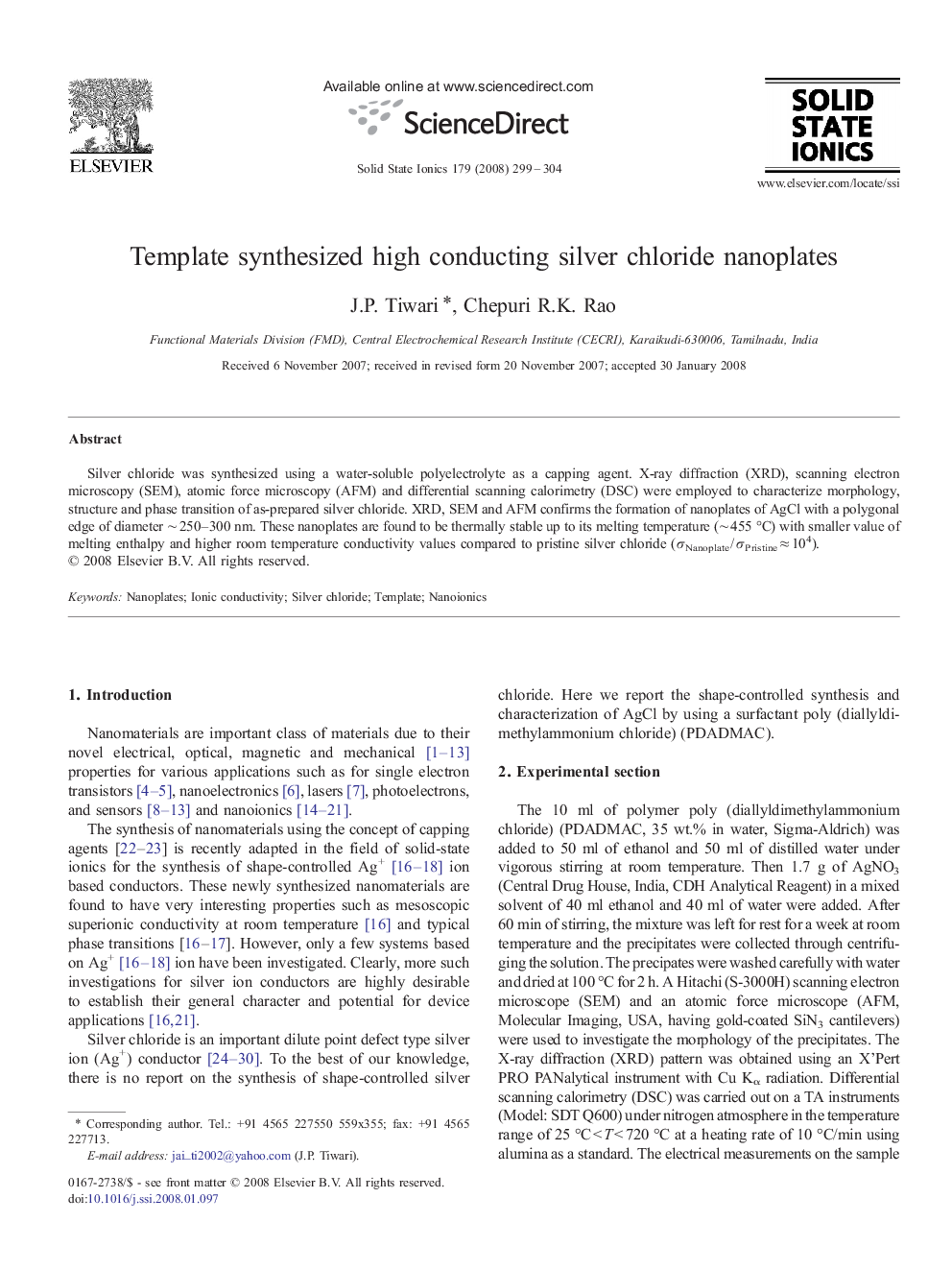| Article ID | Journal | Published Year | Pages | File Type |
|---|---|---|---|---|
| 1298797 | Solid State Ionics | 2008 | 6 Pages |
Abstract
Silver chloride was synthesized using a water-soluble polyelectrolyte as a capping agent. X-ray diffraction (XRD), scanning electron microscopy (SEM), atomic force microscopy (AFM) and differential scanning calorimetry (DSC) were employed to characterize morphology, structure and phase transition of as-prepared silver chloride. XRD, SEM and AFM confirms the formation of nanoplates of AgCl with a polygonal edge of diameter ∼ 250–300 nm. These nanoplates are found to be thermally stable up to its melting temperature (∼ 455 °C) with smaller value of melting enthalpy and higher room temperature conductivity values compared to pristine silver chloride (σNanoplate / σPristine ≈ 104).
Related Topics
Physical Sciences and Engineering
Chemistry
Electrochemistry
Authors
J.P. Tiwari, Chepuri R.K. Rao,
